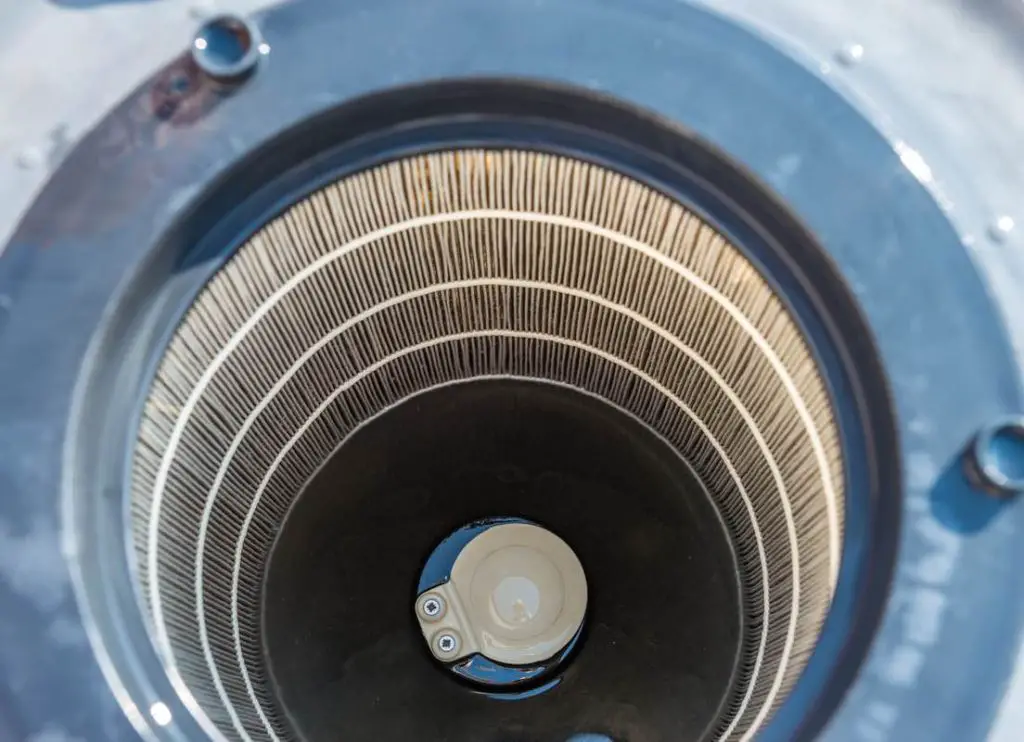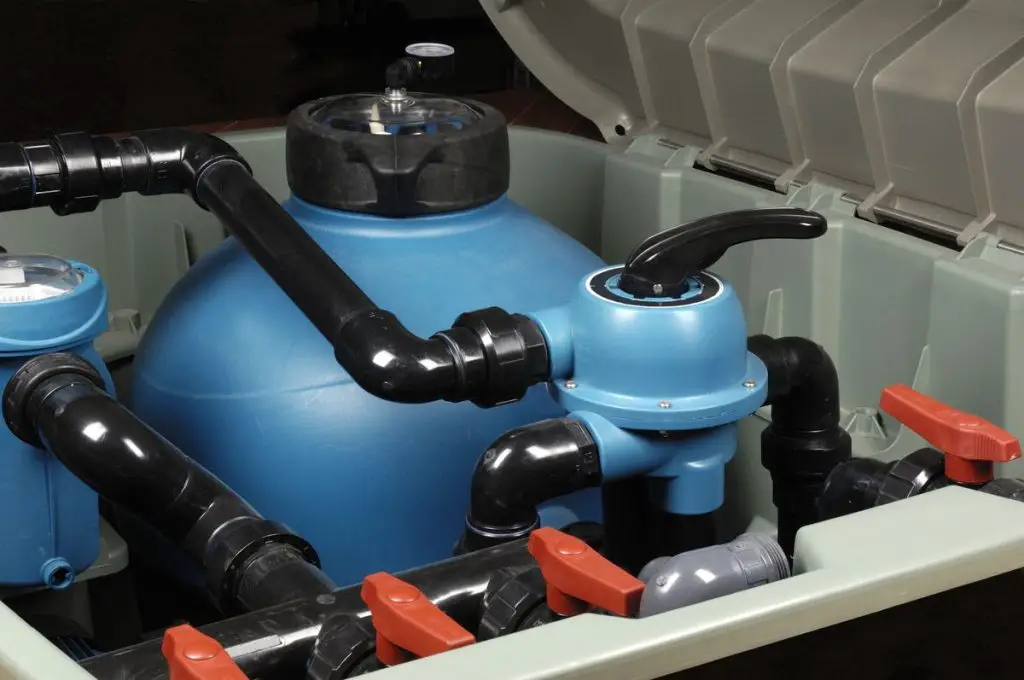Swimming pool filters are run weekly to clean and purify the water in your pool by removing particles and debris. On the other hand, a pool heater enables homeowners the luxury of using their pool any time of the year, even during the colder winter months. While both systems offer incredible value, can a heater be run without a filter?
It’s possible to run a pool heater without a filter, but this isn’t always ideal and can be more work than you may want. If you plan to run your heater without a filter, you should replace the pool water more frequently. The lack of a filter means that your pool will likely be dirty more often.
Pools are a great way to relax and have fun during the summer, but they can also be a pain to maintain. One way to easily maintain a pool is by using a filter. This article will examine whether running a pool heater without a filter is beneficial.

How a Pool Heater Works
A swimming pool is an excellent way to beat the summer heat, but they’re not much more than a large body of cold water taking up space in cold weather.
To help you keep your pool from turning from fun to frozen, here’s a rundown of how a pool heater works.
A pool heater is a straightforward machine that takes the energy from the sun, gas, or electricity and uses it to heat water, which is circulated and returned to your pool. That is where the simplicity ends.
There are many different pool heaters, each working in its own way.
For example, gas heaters use gas, usually propane or natural gas, to produce heat that raises the water temperature in your pool.
Electric heaters use electricity to power coils submerged inside hot water tanks. These coils warm the water around them, heating it until it reaches the desired temperature and then turning it off.
Solar-powered heaters use solar panels to convert sunlight into electric energy. This energy heats up a series of pipes full of water until they reach the desired temperature and then turn off again.
Most people think a pool heater is something that only heats your swimming pool at a given moment – but that’s only half the story. Pool heaters also help maintain the appropriate water temperature, so you don’t have to.
It’s not just for outdoor pools, either – many homeowners use pool heaters indoors to keep their kids warm in the winter or even just to ensure their pool is clean and comfortable all year long.
The average pool heater will push enough hot water through the system to raise the temperature of a typical residential pool by about 5 to 10 degrees per hour. However, there are several types of heaters with varying capacities and energy consumption rates, so make sure you choose one that’s right for your needs!
A Filter Circulates the Water in Your Pool
Running a pool heater without a filter is theoretically possible, but it can decrease the cleanliness of your pool water.
A filter helps ensure enough circulation to move water through the heater and prevent stagnation. It also ensures that the proper amount of chlorine is being circulated throughout the pool, preventing algae growth. With a properly-functioning filter, circulation is not an issue.
The filter removes debris and solid particles from the water, helping to keep the water clean. Without it, sediments and other particles can quickly accumulate in the bottom of the pool. This can lead to clogged pipes, which reduces water flow through your heater.
Stagnant water contains bacteria and other microorganisms that can cause skin infections, rashes, and other health problems. It may also have minerals that are toxic to humans if tap water is used to fill your pool (which is recommended only for larger pools).
These contaminants will not be removed by any amount of chlorine in your pool, so they can be harmful if ingested or inhaled. This may also lead to cloudy water, which could make swimming dangerous because swimmers may not be able to see hazards such as rocks or tree limbs.
By running your filter correctly, you will maintain your pool’s cleanliness and ensure the proper circulation of warm water produced by your heater.
The Verdict
Yes, you can run a pool heater without a filter. That’s because the filter is only responsible for keeping the water clean, not controlling the temperature of the water.
Now, this doesn’t suggest that you should go ahead and skip installing a filter altogether. Filters are essential for safety and cleanliness. Filters keep bacteria from growing in your pool, making people sick if they swim in it.
All in all, skipping the filter entirely would be like taking away how clean your poor could potentially be. The warm water would not circulate as effectively as it would with one. While your pool might get warm enough eventually, you’ll spend a lot more time on maintenance along the way!
The water that runs through your heater must be as clear and clean as possible. Without a filter to keep the water flowing through smoothly, you could have problems like a clogged heater. A clogged heater means no heat for your pool.
Most pool owners opt to run a filter alongside their heater to avoid this problem. If you can commit to keeping your pool clean and well maintained, you can run your heater with no filter. Just be sure to monitor the water’s clarity closely.
Now that you know about filters, you should see if your heater can work without an active pump. Find out the answer by clicking on the link. [Will a Pool Heater Run if the Pump is Off?]

Final Thoughts
If you’re a pool owner, you know the importance of having a good filter. The quality of your water, and the cleanliness of your pool, will likely suffer without it.
It is possible to run a pool heater without a filter. With that said, it’s recommended to have a sound filter system. Filters do an excellent job of maintaining clean water and thus extend the life of your heater.
I hope this helps you make a well-informed decision about how you want to heat your pool.
